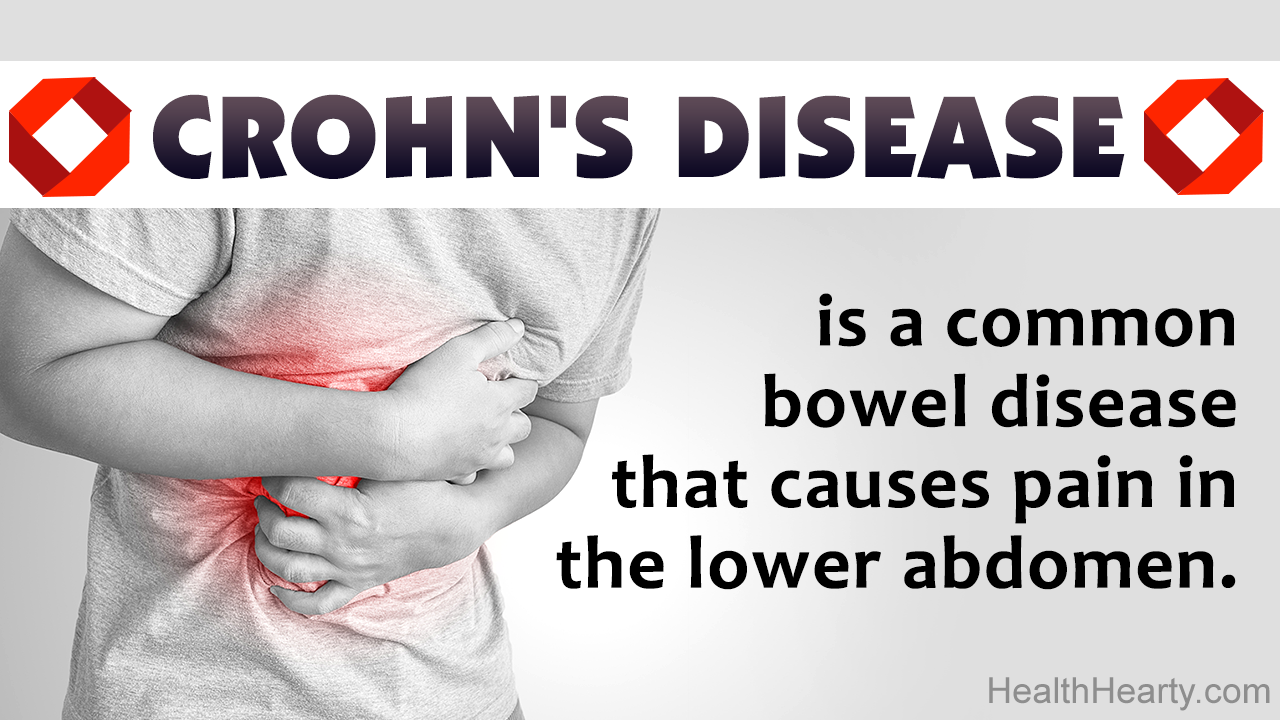
Lower abdominal pain or belly aches are common health problems which in most of the cases, aren’t serious, but sometimes in extreme cases, may need a doctor’s advice. This HealthHearty article provides information regarding pain in the lower abdomen.
Our abdomen extends from the chest to the hips and includes internal organs like the intestines, appendix, gallbladder, pancreas, and liver. A slight discomfort in the lower abdomen can originate from any of these organs. However, sensations of pressure are experienced due to problems in the abdominal region that lies below the belly button or umbilicus.
Causes
Pain in the lower abdomen can either be on the right or left side or just below the belly button or umbilicus, in the mid line. It can be mild or severe, but if it persists, then medical assistance should be sought.
- Abdominal Aortic Aneurysm: It is the most common cause of lower abdominal pain. It occurs when the largest blood vessel in the body, called the aorta, becomes bulgy along its course in the abdomen, and begins to leak.
- Appendicitis: It’s a condition characterized by the inflammation of the appendix, which leads to intense lower abdominal pain.
- Bladder Infection: Also called cystitis, it’s an inflammation of the urinary bladder and ureters, causing pain and discomfort.
- Bowel Obstruction: Any kind of bowel obstruction causing complete or partial blockage of feces and wind, can lead to pain and discomfort.
- Crohn’s Disease: A common bowel disease, Crohn’s disease causes chronic inflammation of the gut.
- Diverticulitis: It’s the most common cause of lower left abdominal pain in elderly people. It occurs due to the bulging of the wall of the bowel, affecting the sigmoid colon, leading to severe pain.
- Ectopic Pregnancy: An ectopic pregnancy occurs when the fertilized ovum starts developing outside the womb (uterus) in one of the fallopian tubes. In rare cases, it occurs in the ovary or cervix. As the ovum grows and develops, if it ruptures the tissues and muscles around it, it may cause severe discomfort and massive blood loss, and therefore it can be life threatening.
- Endometriosis: This condition occurs exclusively in women. It is the presence of a tissue that makes up the uterine lining outside the uterus, where it functions normally-it thickens, breaks down and bleeds with each menstrual cycle- and causes severe pain in the lower abdomen during intercourse and menstruation.
- Irritable bowel syndrome (IBS): It’s a functional gastrointestinal disorder characterized by bouts of cramping, abdominal pain, bloating, gas, passing of hard stools, and diarrhea.
- Kidney Infection: Also called pyelonephritis, it’s an ascending urinary tract infection that may cause discomfort in the lower abdomen in men as well as women.
- Ovarian Cyst: It’s the formation of fluid-filled sacs or pockets within the ovarian tissue or on the surface of the ovaries. It causes intense abdominal pain that may spread towards the thighs also.
Symptoms
- Constipation
- Painful urination
- Vomiting
- Reduced appetite
- Weight loss
- Fever
- Dizziness and weakness
- Diarrhea
Diagnosis and Treatment
Though it’s difficult to diagnose the actual cause and location of lower abdominal pain, the patient can help the doctor by writing down various factors that increase or reduce the pain, other problems that occur along with the lower abdominal pain like vomiting, diarrhea, etc. The patient can also undergo some diagnostic tests like blood and urine analysis, ultrasonography of the abdomen, endoscopy, upper gastrointestinal (GI) X-ray, and CT scan.
Proper rest, taking slow and deep breaths, and keeping the abdominal area warm by using a warm washcloth or heating pad are some simple techniques that will help in a speedy recovery. Drinking enough fluids and increasing fiber intake in the daily diet will also help relieve some of the pain or discomfort caused due to constipation or bowel obstruction.
Therefore, mild or dull abdominal pain can be treated by making some healthy modifications in our lifestyles and eating habits. However, if the pain becomes intense or worsens with time, it’s recommended to consult a doctor for necessary medications.
Disclaimer: This HealthHearty article is for informative purposes only, and should not be used as a replacement for expert medical advice.






